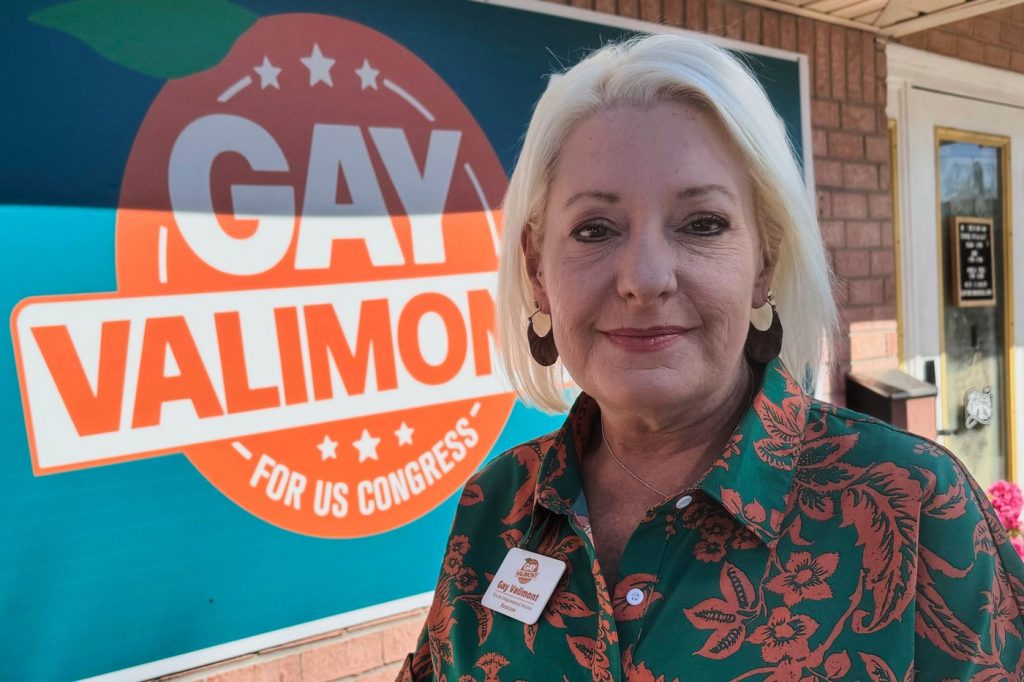TALLAHASSEE, Fla. (AP) – Democrats are investing heavily in two special elections in Florida as they seek avenues for expressing their frustration with President Donald Trump's alterations to the federal government. The Democratic candidates are attempting to flip two congressional seats, which are perceived as Trump-friendly, in hopes of narrowing the Republican hold on the U.S. House of Representatives, currently at a slim 218 to 213 majority. Although party leaders are not expecting outright victories in these Republican-leaning districts, they express optimism about exceeding expectations, particularly in the 6th Congressional District.
In the race to replace former Rep. Mike Waltz, a public school teacher has dramatically outperformed a Trump-endorsed state senator in fundraising, raising nearly 10 times more money. Observers note that the influx of resources into these races signals growing discontent among voters in traditionally conservative parts of Florida towards Trump’s administration, especially during his aggressive second term.
The special elections set for April 1 will serve as an early assessment of the new administration's public support. The districts in question, 1st and 6th Congressional, were previously held by former Reps. Matt Gaetz and Waltz, both of whom left to join the Trump administration. Gaetz was under investigation and withdrew from consideration for attorney general amid allegations of sexual misconduct, while Waltz has faced scrutiny over the leaking of sensitive military information. The current Democratic challengers, Gay Valimont and Josh Weil, have both managed to outraise their Republican opponents significantly.
Republicans, including Trump, have recognized the stakes of the upcoming elections and are proactively working to prevent any embarrassing losses. The president participated in tele-town halls to rally support for Republican candidates. Winning both races would mark a significant achievement for the Democratic Party, particularly as it attempts to regroup after losing control of Congress and the presidency in the previous year.
The urgency surrounding these elections extends to the Republican candidates, Jimmy Patronis and Randy Fine, who have staunchly aligned themselves with Trump's policies. Despite this, the financial advantage currently held by the Democrats has prompted concerns among Republican leaders, who fear a potential undermining of their established electoral dominance. Political strategies are being adjusted, with efforts on both sides to engage and mobilize grassroots supporters.
In the 6th District, Weil's atmospheric fundraising of $9 million starkly contrasts with Fine's $600,000, leading to calls within the GOP to bolster Fine’s campaign finances. Despite the challenges, GOP leaders maintain confidence, asserting that turnout dynamics during special elections may favor them. Historical performance in special elections, however, offers a note of caution, as attendance often dips compared to general elections, which could dilute Republican margins of victory.
As the Democratic momentum builds, so does attention on grassroots efforts, with funding reportedly coming in from all 50 states. This unexpected support has heightened competition, transforming what were once considered safe Republican districts into battlegrounds. House Minority Leader Hakeem Jeffries underscored that any Democratic gains in these races would signal broader public dissatisfaction with Republican leadership, potentially impacting the 2026 midterms.
Both candidates in the 6th District have drawn substantial financial backing and are positioning their campaigns around key issues resonating with local constituents, such as Trump’s policies on federal employment and government restructuring. As the elections draw nearer, the narrative of grassroots activism against established Republican candidates unfolds, bringing a fresh perspective on these traditionally solid partisan territories.










